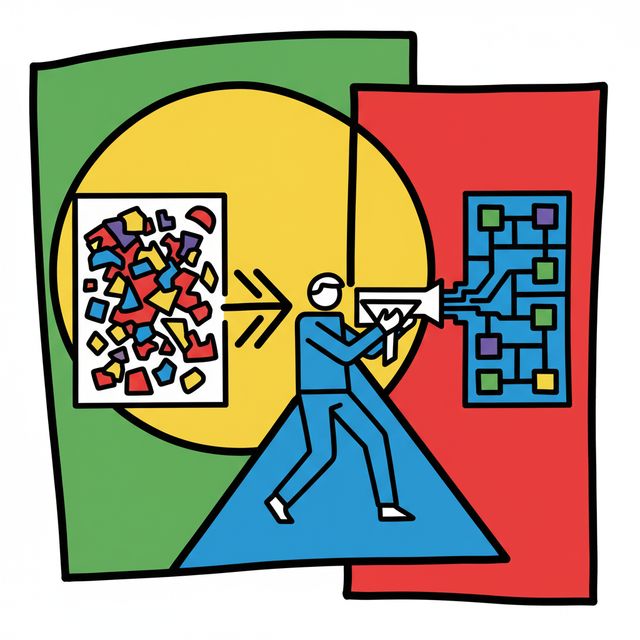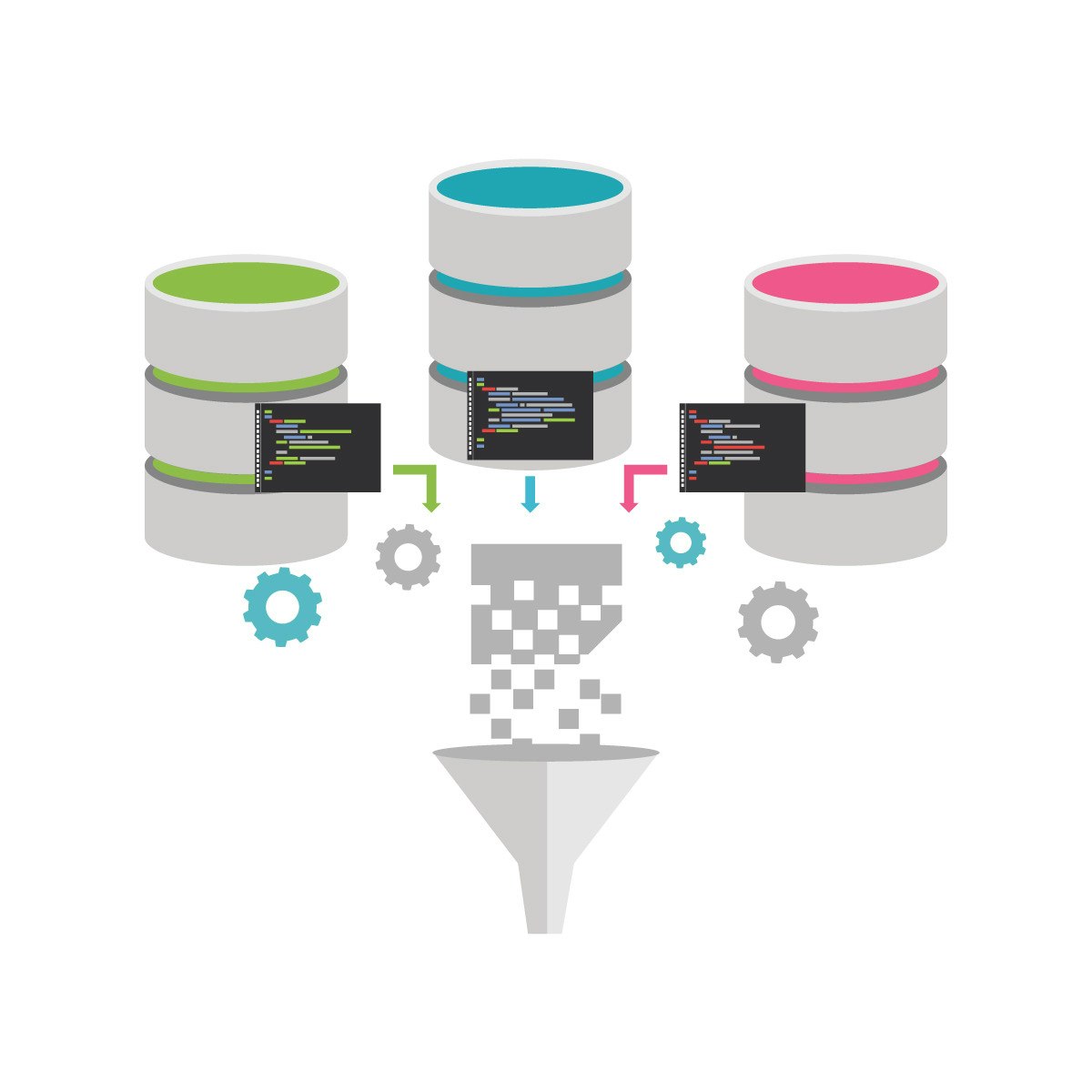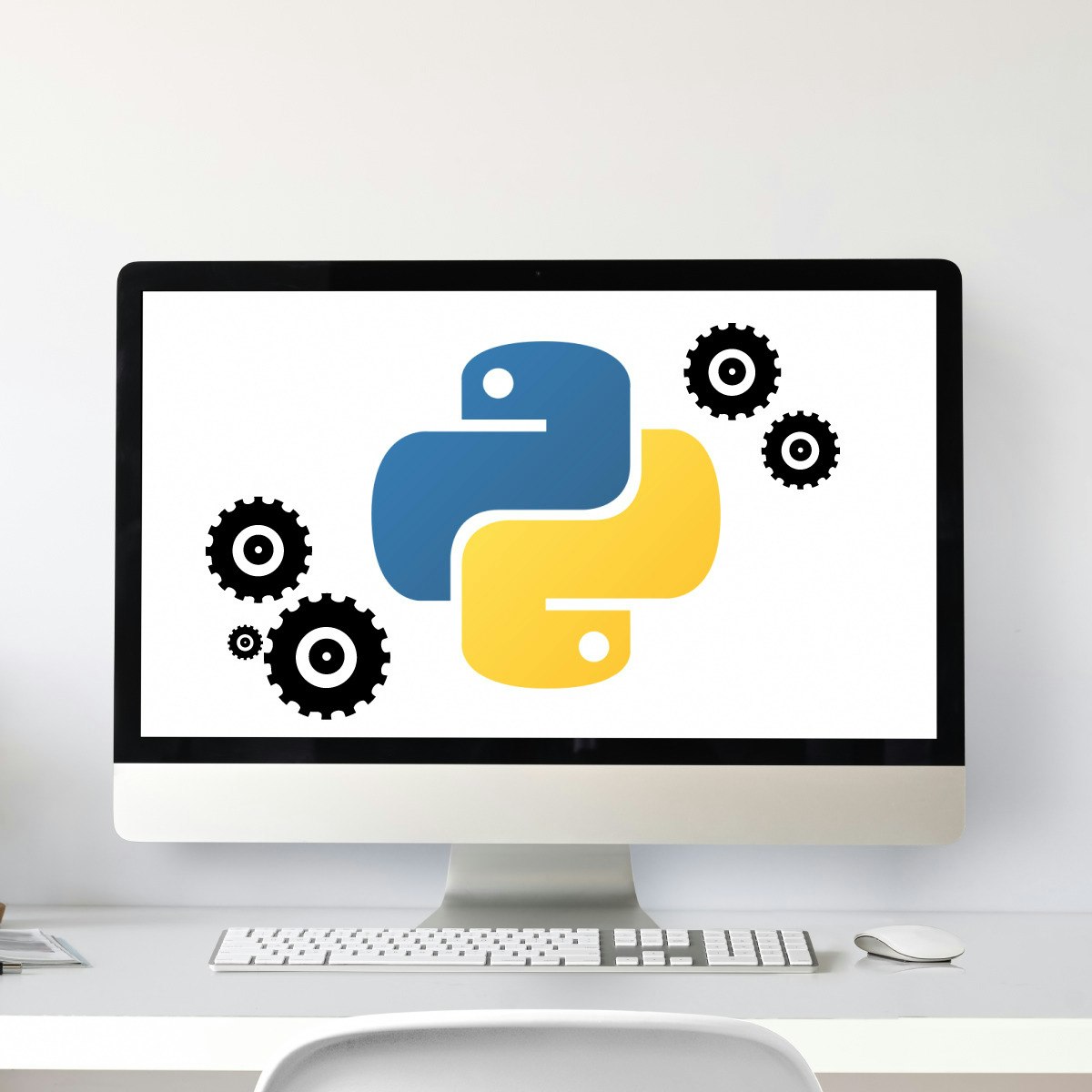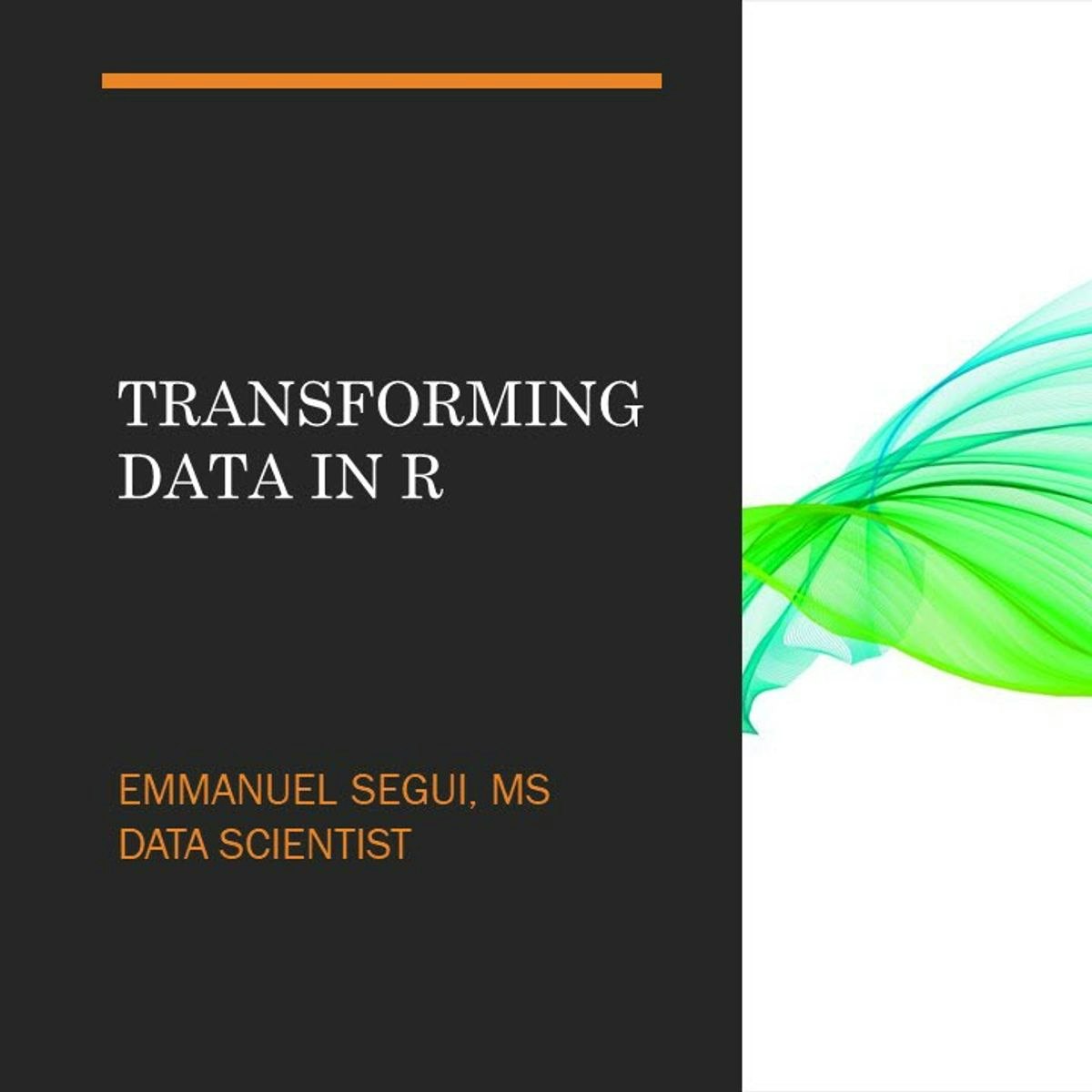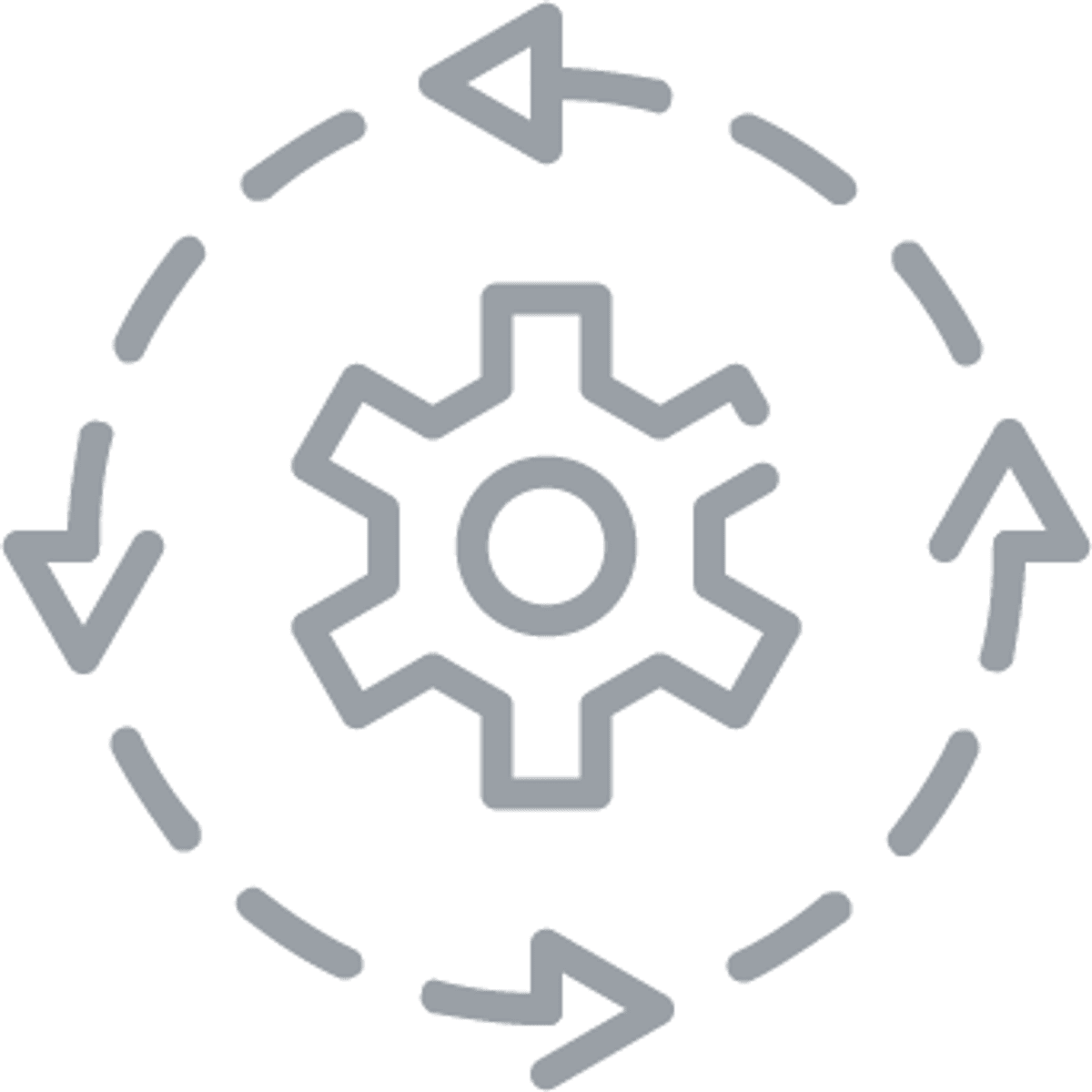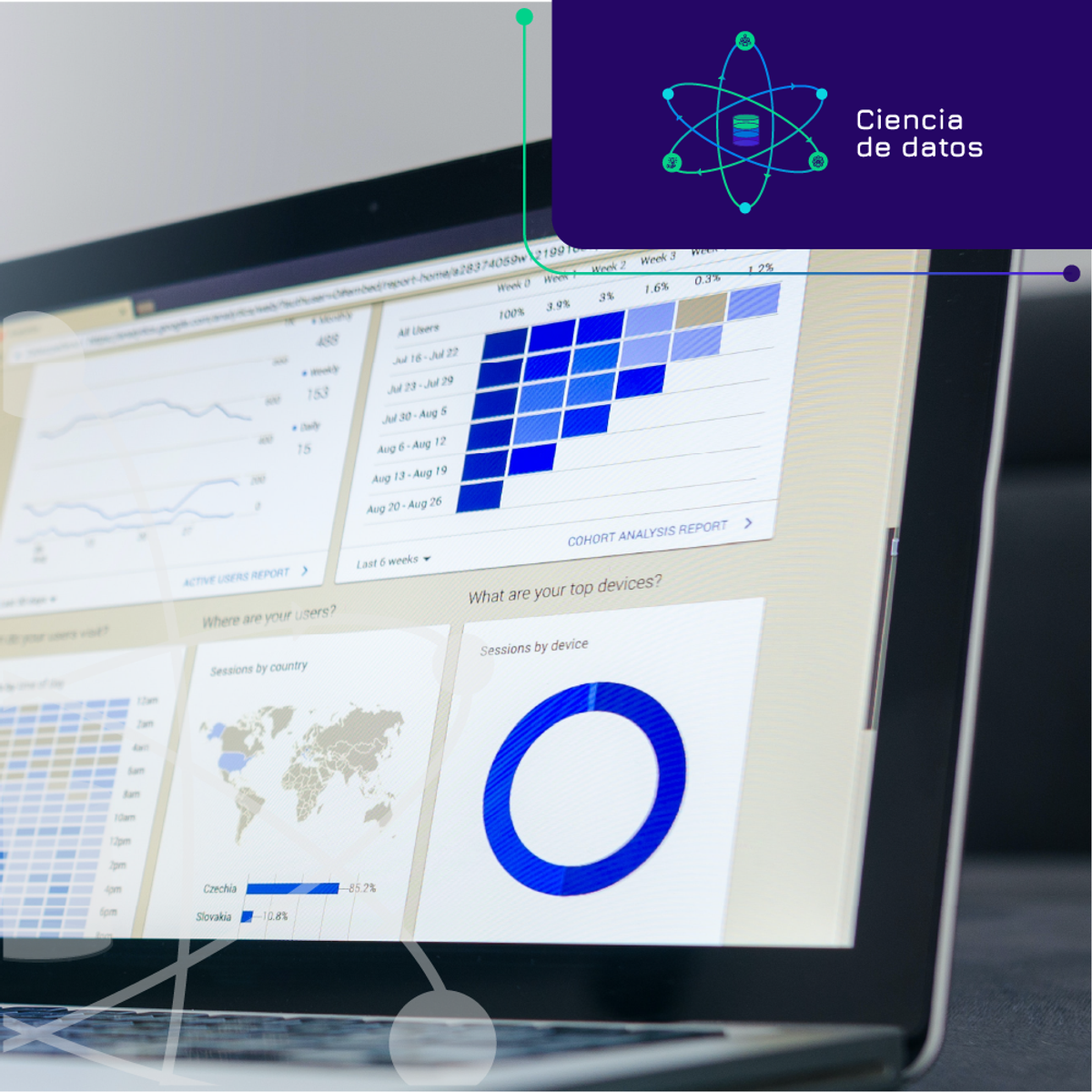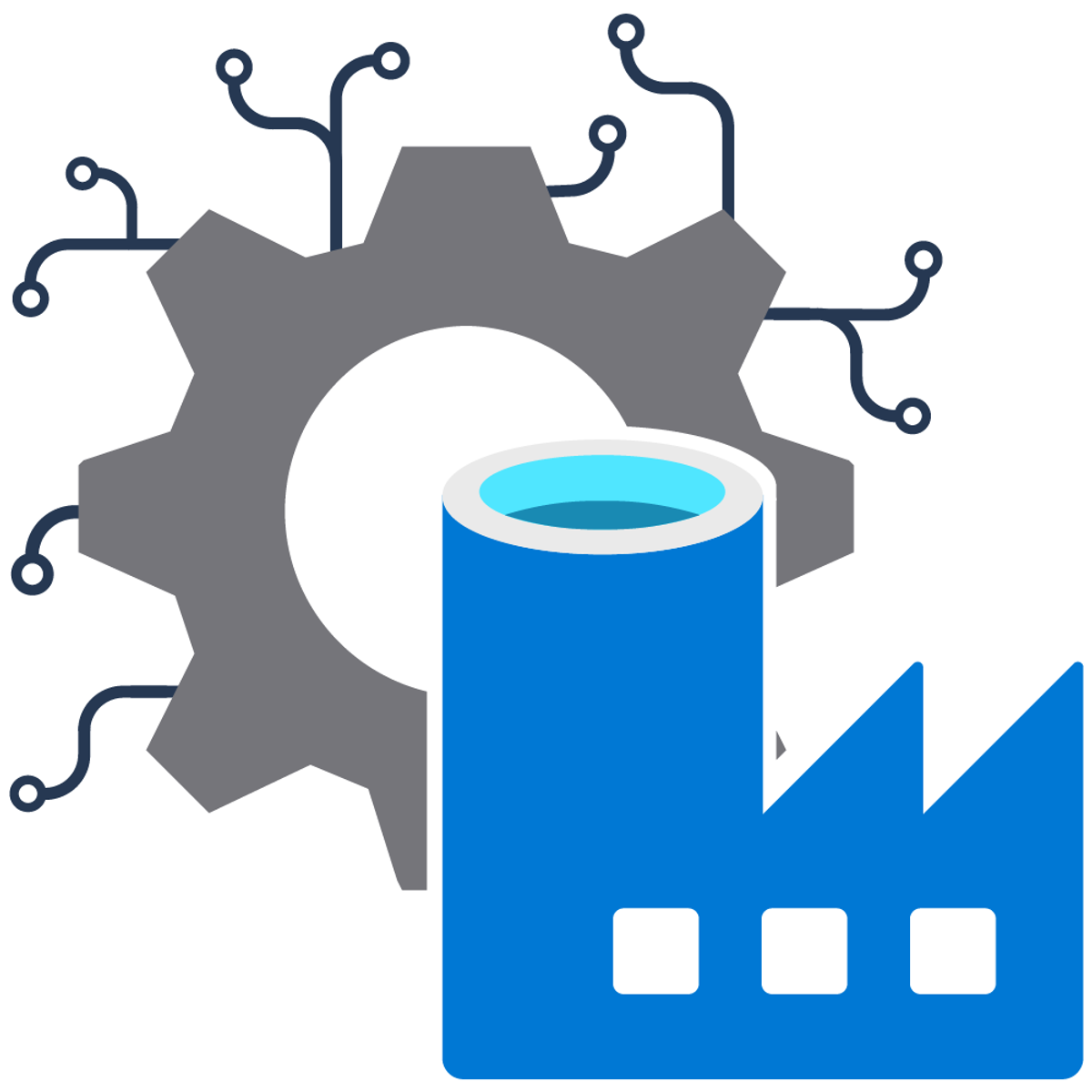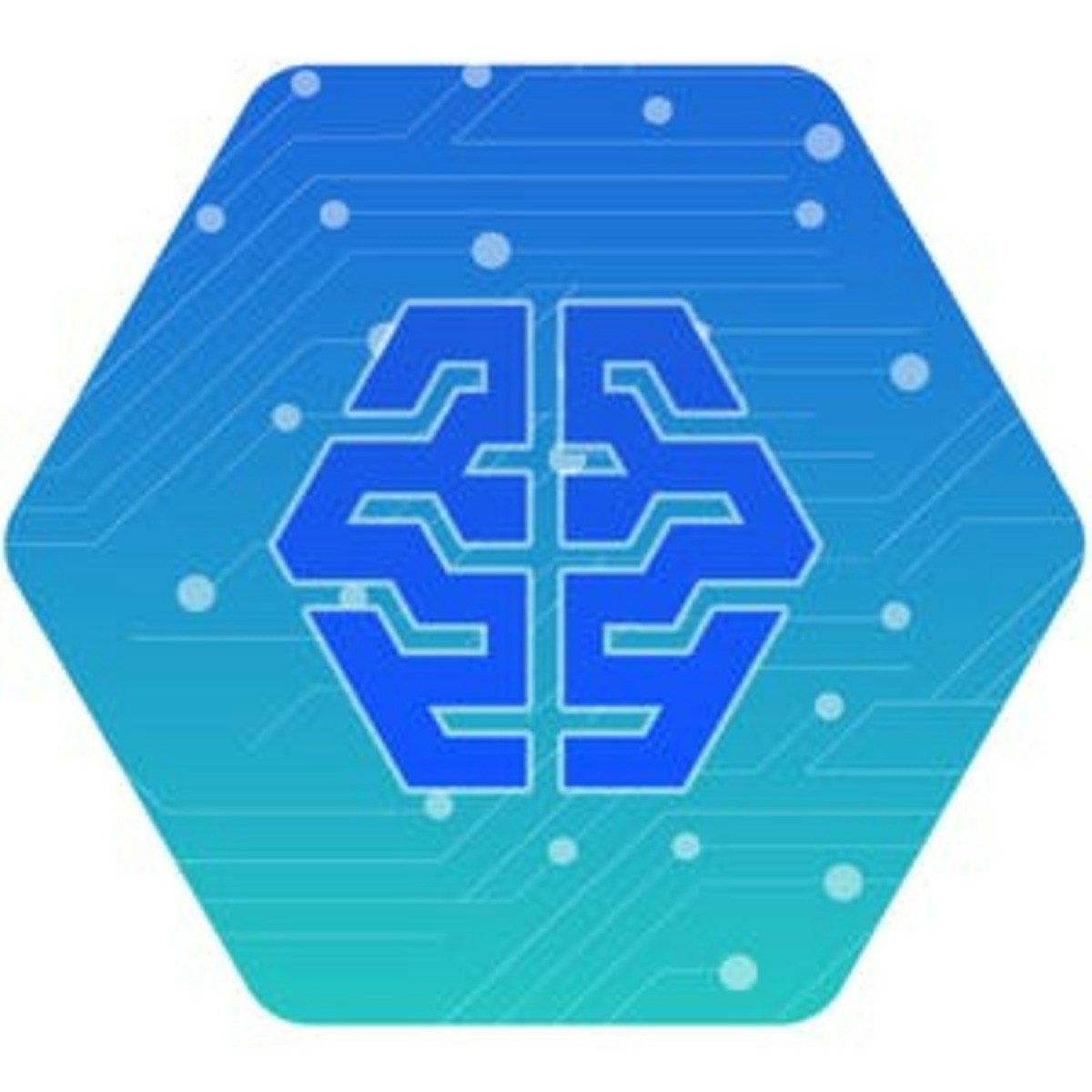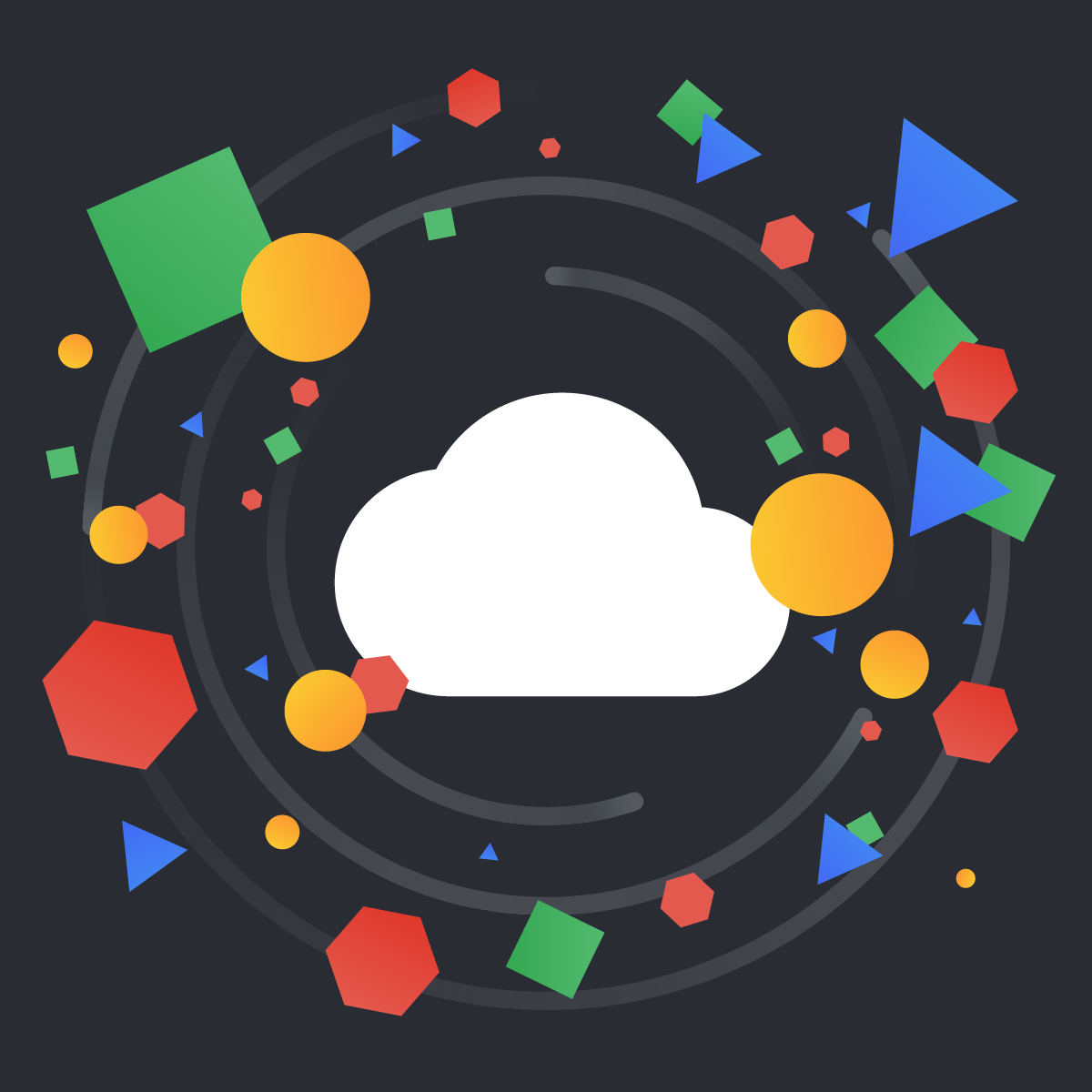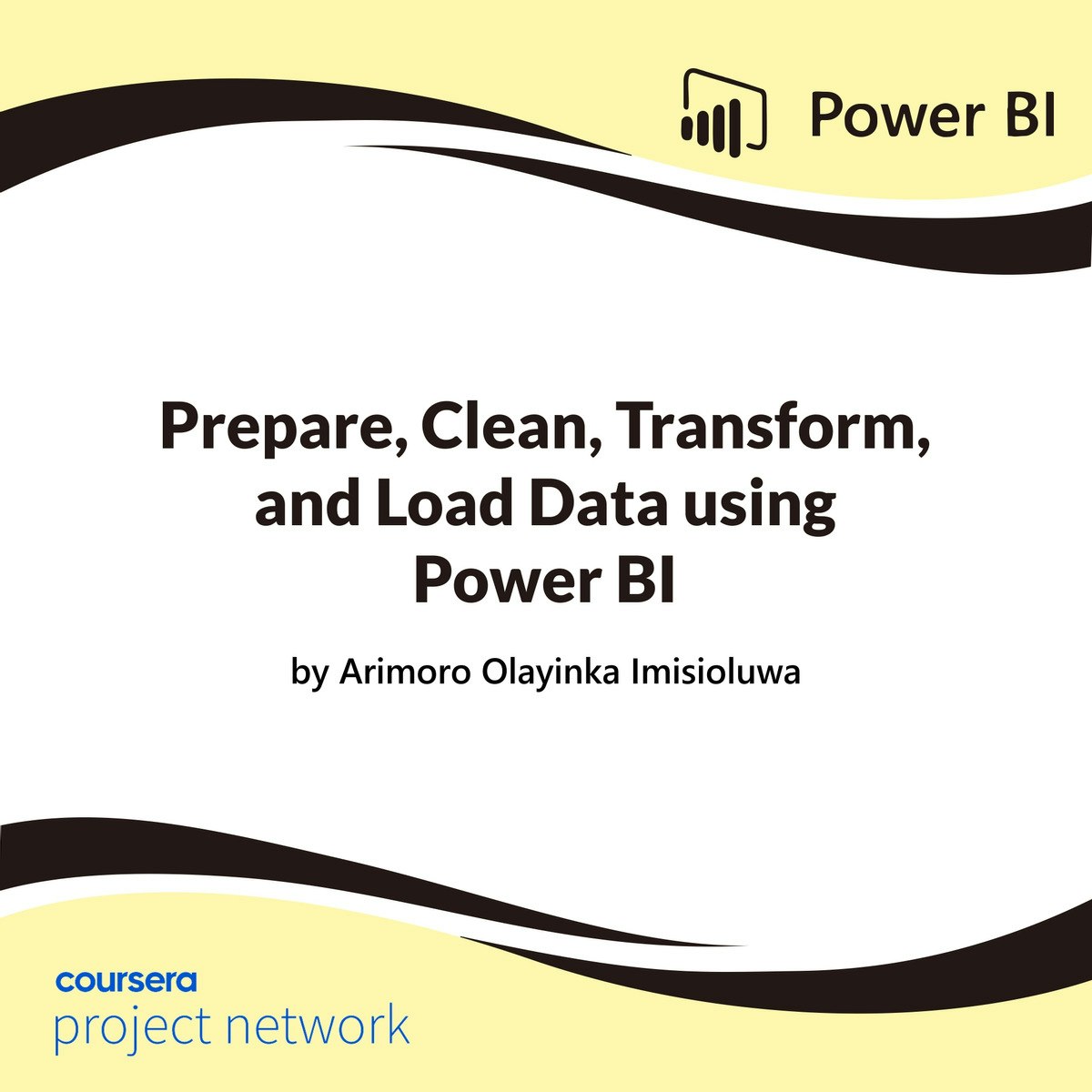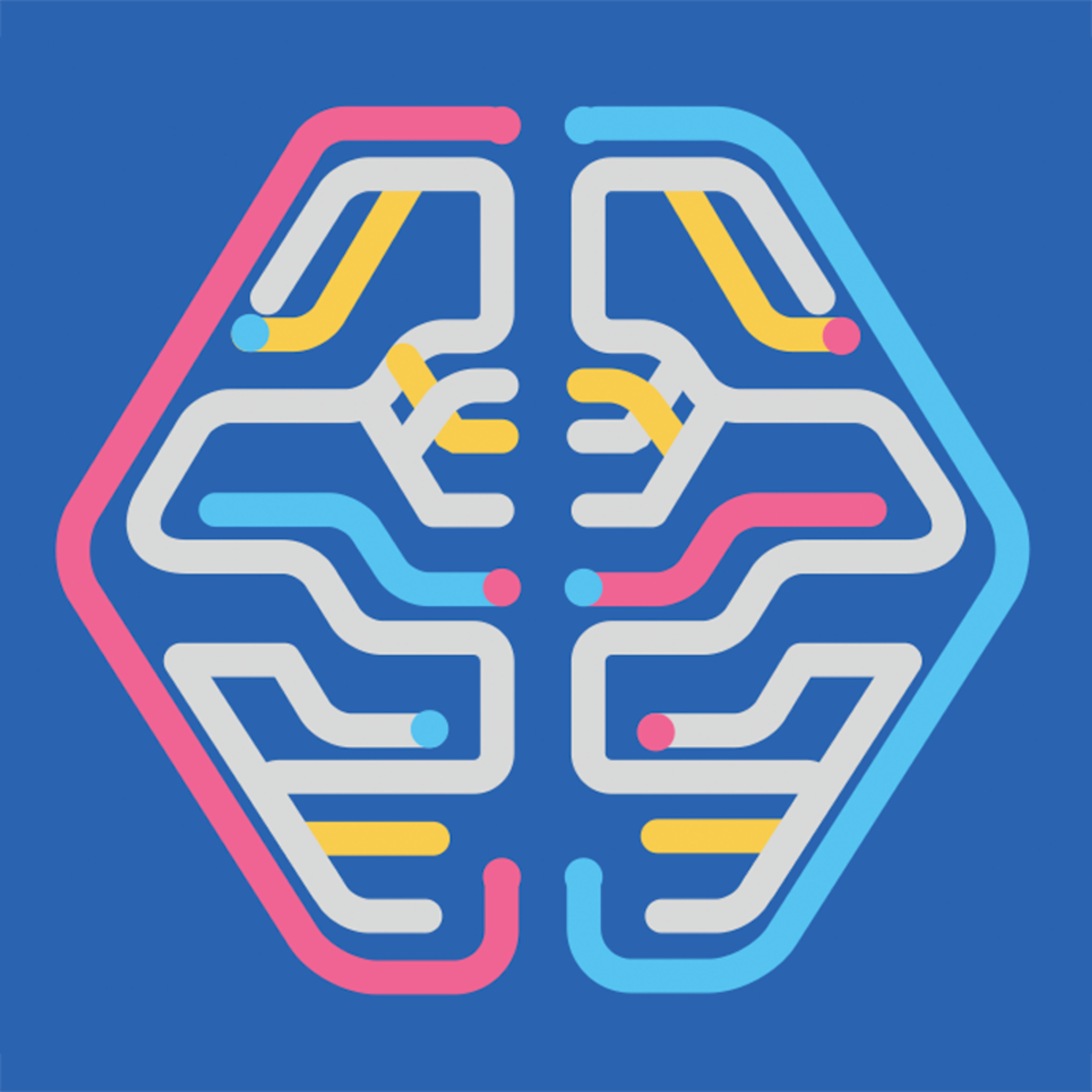Data Transformation
vigating the World of Data Transformation
Data transformation is the process of changing the format, structure, or values of data. At a high level, it involves taking raw data, which might be messy, inconsistent, or in a format unsuitable for analysis, and converting it into a clean, organized, and usable form. This is a critical step in any data-driven workflow, ensuring that information is accurate, consistent, and ready for processing, analysis, or visualization. Imagine trying to bake a cake with ingredients in all sorts of different containers and measurements – some in grams, some in ounces, some liquid, some solid. Data transformation is like converting all those ingredients into a standard set of measurements and a consistent state so you can follow the recipe and bake a delicious cake.
Working with data transformation can be engaging and exciting for several reasons. Firstly, it's like being a detective, sifting through clues (data) to uncover a coherent story. You get to solve puzzles and bring order to chaos, which can be immensely satisfying. Secondly, data transformation is at the forefront of innovation. As businesses increasingly rely on data to make decisions, your skills in shaping and refining that data become invaluable, placing you at the heart of technological advancement and strategic initiatives. Finally, the impact of well-transformed data can be profound, leading to better business insights, improved efficiencies, and even new discoveries across various industries.
Introduction to Data Transformation
This section will delve deeper into what data transformation entails, its fundamental purpose, and its crucial role in the broader landscape of data processing. We will also explore some of the key industries that heavily depend on effective data transformation processes.
Definition and Purpose of Data Transformation
Data transformation is the process of converting data from one format or structure to another. The primary purpose is to make data more organized, compatible, and usable for its intended application, whether that's loading it into a data warehouse, performing analytics, or feeding it into a machine learning model. This involves a series of steps such as cleaning (removing errors or inconsistencies), structuring (organizing the data), and enriching (adding missing information or deriving new data points).
Think of it like preparing ingredients before cooking. You might wash vegetables (cleaning), chop them into specific sizes (structuring), and perhaps add some spices (enriching). Similarly, data transformation ensures that your "data ingredients" are in the best possible shape for whatever "data recipe" you're working on. This process is vital for ensuring data quality, accuracy, and consistency, which are foundational for reliable analysis and decision-making.
Effective data transformation allows organizations to unlock the true potential of their data assets. By converting raw, often disparate, data into a harmonized and understandable format, businesses can gain more accurate insights, improve operational efficiency, and make more informed strategic choices. It's a cornerstone of modern data management, enabling everything from simple reporting to complex artificial intelligence applications.
Role in Data Processing Pipelines
Data transformation is a critical stage within any data processing pipeline. A data pipeline is a series of steps that move data from a source system to a destination, often involving various processing stages along the way. Transformation typically occurs after data extraction (getting the data from its source) and before data loading (placing the processed data into its target system, like a data warehouse or analytics platform). This sequence is often referred to as ETL (Extract, Transform, Load).
In this pipeline, the transformation phase acts as the quality control and refinement center. Raw data extracted from various sources can be messy, inconsistent, and in different formats. The transformation step cleanses this data, standardizes formats, resolves inconsistencies, and restructures it into a usable and coherent dataset. Without this crucial step, the data loaded into the destination system could be unreliable, leading to flawed analyses and incorrect conclusions.
Furthermore, data transformation can involve more complex operations like aggregation (summarizing data), joining data from multiple sources, or creating new calculated fields. These operations add value to the data, making it more insightful and ready for specific analytical or reporting needs. Essentially, data transformation ensures that the data flowing through the pipeline is fit for purpose, enabling downstream processes and users to work with high-quality, reliable information.
These courses can help build a foundation for understanding data pipelines and the role of transformation within them.
Key Industries Relying on Data Transformation
Data transformation is not confined to a single industry; its applications are widespread and vital across numerous sectors. In finance, for example, data transformation is essential for regulatory reporting, fraud detection, and risk management. Financial institutions deal with vast amounts of transactional data from various sources, which must be transformed into standardized formats for analysis and compliance.
The healthcare industry heavily relies on data transformation to integrate patient data from disparate systems (like electronic health records, lab results, and billing systems), enabling better patient care, medical research, and operational efficiency. Standardizing this data is crucial for accurate diagnoses, personalized medicine, and public health analysis. For example, transforming patient data can help in creating a complete view of a customer, allowing for better service.
Retail and e-commerce businesses use data transformation to understand customer behavior, optimize supply chains, and personalize marketing efforts. They collect data from point-of-sale systems, websites, mobile apps, and social media. Transforming this data allows them to create unified customer profiles, analyze purchasing patterns, and manage inventory effectively. Other industries like manufacturing (for optimizing production processes), telecommunications (for network management and customer service), and marketing (for campaign analysis and customer segmentation) also depend heavily on robust data transformation practices.
For those interested in how data is managed and utilized across different sectors, exploring the broader field of Data Science can provide valuable context.
Core Techniques in Data Transformation
Understanding the core techniques used in data transformation is essential for anyone looking to work in this field. This section will explore common methodologies, data shaping practices, and approaches for handling diverse data types. These techniques form the bedrock of effective data preparation and are crucial for ensuring data quality and usability.
ETL vs. ELT Methodologies
Two primary methodologies govern how data transformation fits into the broader data integration process: ETL (Extract, Transform, Load) and ELT (Extract, Load, Transform). The fundamental difference lies in when the transformation occurs.
In the traditional ETL approach, data is extracted from source systems, then transformed in a separate staging area or processing server, and finally loaded into the target data warehouse or analytics platform. This means the data is cleaned, structured, and refined before it reaches its final destination. ETL is often well-suited for structured data and situations where data governance and quality control are paramount before data enters the analytical environment.
Conversely, the ELT approach extracts data and loads it directly into the target system (often a data lake or cloud data warehouse) in its raw or semi-raw state. The transformation then happens within the target system, utilizing its processing power. ELT has gained popularity with the rise of powerful cloud data warehouses that can handle large volumes of diverse data types and perform transformations efficiently. This approach offers more flexibility, as transformations can be adapted as needed, and it can be faster for loading large datasets.
To gain a deeper understanding of these critical data integration methodologies, consider exploring these courses:
For further reading on how data is engineered and managed in large systems, this topic provides a good overview:
Data Normalization and Standardization
Data normalization and standardization are two important techniques used to rescale numeric data, but they achieve this in different ways and are suited for different scenarios. Both aim to bring data features to a common scale, which can be crucial for the performance of certain machine learning algorithms and statistical analyses.
Normalization typically refers to scaling data to a fixed range, most commonly between 0 and 1, or sometimes -1 to 1. This is often achieved using min-max scaling, where the smallest value in a feature is mapped to 0 and the largest value is mapped to 1, with all other values scaled linearly in between. Normalization is useful when the distribution of the data is unknown or not Gaussian, and for algorithms that are sensitive to the magnitude of feature values but not their distribution, such as K-Nearest Neighbors (KNN) or neural networks.
Standardization, on the other hand, transforms data to have a mean of 0 and a standard deviation of 1. This is also known as Z-score normalization. It involves subtracting the mean of the feature from each data point and then dividing by the standard deviation. Standardization does not bind values to a specific range, which means it's less affected by outliers compared to min-max normalization. It is often preferred for algorithms that assume data is normally distributed or are sensitive to feature scale, such as logistic regression, support vector machines (SVMs), and Principal Component Analysis (PCA).
These courses offer insights into practical data manipulation, which often involves normalization and standardization techniques.
Understanding SQL is also fundamental for many data transformation tasks involving structured data.
Handling Unstructured Data Formats
Handling unstructured data presents unique challenges in data transformation. Unlike structured data, which fits neatly into tables with rows and columns, unstructured data (such as text documents, images, videos, audio files, and social media posts) lacks a predefined format or organization. Transforming this type of data requires specialized techniques to extract meaningful information and convert it into a structured or semi-structured format suitable for analysis.
For textual data, techniques like Natural Language Processing (NLP) play a crucial role. NLP methods can be used to parse text, identify entities (like names, locations, organizations), analyze sentiment, and extract key phrases. This allows for the conversion of large volumes of text into structured data points that can be analyzed. For example, customer reviews can be transformed to quantify sentiment scores or identify common themes.
Image and video data transformation often involves techniques from computer vision. This can include object detection, image classification, and feature extraction. For instance, images might be transformed into numerical representations of their features, which can then be used in machine learning models. Similarly, audio data can be transformed using techniques like speech-to-text conversion or by extracting features such as frequency components. The goal is always to convert the raw, unstructured input into a more manageable and analyzable format, often involving sophisticated algorithms and machine learning models.
These courses provide a look into handling various data types, including those that may be unstructured or require significant cleaning.
The following book offers a comprehensive guide to data wrangling, a key aspect of handling diverse data formats.
Tools and Technologies
The landscape of data transformation is rich with a variety of tools and technologies designed to streamline and automate these critical processes. Choosing the right tools depends on factors like data volume, complexity, existing infrastructure, budget, and the specific transformation needs of an organization. This section explores the different categories of tools available, from open-source solutions to commercial platforms and cloud-based services.
Comparison of Open-Source vs. Commercial Tools
When selecting tools for data transformation, organizations often face a choice between open-source and commercial options. Open-source tools, such as Apache NiFi, Talend Open Studio, or libraries within programming languages like Python (e.g., Pandas) and R, offer several advantages. They are typically free to use, highly customizable, and benefit from active community support and development. This can lead to rapid innovation and a wealth of available resources like documentation and forums. However, open-source tools might require more technical expertise to set up, configure, and maintain. Enterprise-level support might be limited or come at an additional cost through third-party vendors.
Commercial tools, on the other hand, such as Informatica PowerCenter, IBM InfoSphere DataStage, or Microsoft SQL Server Integration Services (SSIS), generally provide comprehensive, enterprise-grade features, dedicated customer support, and often more user-friendly interfaces. These tools are designed for scalability, reliability, and security, with robust features for data governance, monitoring, and management. The downside is the cost, which can include licensing fees, subscriptions, and potentially costs for professional services. The choice between open-source and commercial tools often depends on an organization's budget, in-house technical skills, specific feature requirements, and long-term support needs.
Many organizations adopt a hybrid approach, leveraging open-source tools for flexibility and cost-effectiveness in certain areas, while using commercial tools for mission-critical processes that require robust support and enterprise features. The decision should be guided by a thorough evaluation of the total cost of ownership, the complexity of the data transformation tasks, and the skills available within the team.
These courses can introduce you to some of the popular tools and platforms used in data transformation, including both open-source and commercial options.
Cloud-Based Transformation Platforms
Cloud-based transformation platforms have become increasingly prevalent, offering scalability, flexibility, and often a pay-as-you-go pricing model. Major cloud providers like Amazon Web Services (AWS), Microsoft Azure, and Google Cloud Platform (GCP) offer a suite of services for data ingestion, transformation, and storage. Examples include AWS Glue, Azure Data Factory, and Google Cloud Data Fusion. These platforms are designed to handle large volumes of data and integrate seamlessly with other cloud services, such as data lakes, data warehouses, and machine learning platforms.
One of the key advantages of cloud-based platforms is their elasticity. Resources can be scaled up or down based on demand, allowing organizations to pay only for what they use and avoid the upfront costs of on-premises hardware. They also typically offer a high degree of automation for managing infrastructure, updates, and maintenance, freeing up data teams to focus on designing and implementing transformation logic. Furthermore, these platforms often provide managed services for popular open-source technologies like Apache Spark, making it easier to leverage these powerful tools without the complexities of self-management.
However, considerations for cloud-based platforms include data security and compliance, especially when dealing with sensitive information. Organizations must ensure that the cloud provider's security measures align with their requirements and regulatory obligations. Data transfer costs (both into and out of the cloud) can also be a factor. Despite these considerations, the agility, scalability, and cost-effectiveness of cloud-based transformation platforms make them a compelling choice for many organizations, particularly those already invested in a cloud ecosystem.
The following courses provide an introduction to data transformation using popular cloud platforms.
Exploring topics like Cloud Data Warehousing can provide more context on where transformed data often resides in cloud environments.
Integration with Big Data Ecosystems
Data transformation plays a pivotal role within big data ecosystems. Big data environments, characterized by high volume, velocity, and variety of data, often rely on distributed processing frameworks like Apache Spark and storage solutions like Hadoop Distributed File System (HDFS) or cloud-based data lakes. Transformation tools and techniques must be able to integrate seamlessly with these components to process and prepare massive datasets for analysis.
Many modern data transformation tools are designed with big data in mind. They often provide connectors to various big data sources and destinations and can leverage the processing power of distributed clusters. For example, tools might allow users to define transformation logic graphically, which is then translated into Spark code that runs on a cluster. This enables efficient processing of petabytes of data by distributing the workload across multiple nodes.
The ability to handle diverse data formats, including unstructured and semi-structured data, is also crucial in big data ecosystems. Transformation pipelines in these environments frequently involve parsing complex data types, extracting relevant features, and structuring the data for use in machine learning models or large-scale analytics. Technologies like Apache Kafka for real-time data streaming also integrate with transformation processes to enable continuous data refinement as it flows through the system. Effective integration ensures that organizations can derive value from their vast and complex big data assets.
These courses touch upon tools and concepts relevant to big data and its transformation.
This book offers insights into leveraging big data platforms.
For a broader understanding, consider exploring the topic of Big Data itself.
Ethical Considerations
As data becomes increasingly central to decision-making in all aspects of society, the ethical implications of how data is collected, processed, and used are paramount. Data transformation, as a critical step in the data lifecycle, is not exempt from these ethical considerations. Ensuring fairness, privacy, and compliance is crucial for building trust and responsible data practices.
Bias Mitigation in Transformed Data
Data transformation processes can inadvertently introduce or amplify biases present in the original data if not carefully designed and monitored. Bias in data can arise from various sources, including historical societal biases reflected in the data, sampling biases where certain groups are over or underrepresented, or measurement biases in how data is collected. When data is transformed, these biases can be perpetuated or even exacerbated, leading to unfair or discriminatory outcomes when the transformed data is used for analytics or machine learning models.
Mitigating bias during data transformation requires a conscious effort. This can involve techniques such as re-sampling to address imbalances in representation, re-weighing certain data points, or modifying feature constructions to remove or reduce the impact of biased attributes. It also requires careful examination of the transformation logic itself to ensure it doesn't unintentionally favor certain groups or outcomes. Tools and frameworks for fairness-aware machine learning are emerging, and some of these principles can be applied during the data transformation phase.
Beyond technical solutions, addressing bias also involves a human element. Data professionals need to be aware of the potential for bias and actively look for it. Diverse teams, inclusive design practices, and regular audits of data and models for fairness are essential components of a comprehensive bias mitigation strategy. The goal is to ensure that transformed data, and the insights derived from it, are as fair and equitable as possible.
Privacy-Preserving Transformation Techniques
Protecting individual privacy is a critical ethical and legal requirement when handling personal data. Data transformation techniques can play a role in enhancing privacy by de-identifying or anonymizing data before it is used for analysis or shared. Common privacy-preserving transformation techniques include data masking, where sensitive data fields are obscured (e.g., replacing real names with pseudonyms or showing only the last four digits of a social security number).
Other techniques include aggregation, where individual data points are summarized to a group level, making it harder to identify individuals. Generalization involves reducing the precision of data (e.g., replacing an exact age with an age range). More advanced techniques like differential privacy involve adding carefully calibrated noise to the data in such a way that individual privacy is protected while still allowing for meaningful aggregate analysis. These methods provide mathematical guarantees of privacy.
Choosing the right privacy-preserving technique depends on the nature of the data, the intended use, and the level of privacy risk. It's a balancing act between preserving data utility for analysis and ensuring robust privacy protection. Data professionals must be knowledgeable about these techniques and apply them appropriately to comply with regulations like GDPR or CCPA and to maintain the trust of individuals whose data they are handling.
Regulatory Compliance Challenges
Navigating the complex landscape of data privacy and protection regulations is a significant challenge in data transformation. Regulations like the General Data Protection Regulation (GDPR) in Europe, the California Consumer Privacy Act (CCPA), and various other national and industry-specific laws impose strict requirements on how personal data is collected, processed, stored, and secured. Data transformation processes must be designed to comply with these regulations.
This includes ensuring that data transformations respect principles such as data minimization (collecting and processing only the data necessary for a specific purpose), purpose limitation (using data only for the purposes for which it was collected), and ensuring data accuracy. Transformation logs and documentation become crucial for demonstrating compliance, showing how data has been altered and for what reasons. Organizations also need to implement appropriate security measures to protect data throughout the transformation process and beyond.
The global nature of data and business operations adds another layer of complexity, as organizations may need to comply with multiple, sometimes conflicting, regulatory frameworks. Keeping abreast of evolving regulations and implementing flexible data transformation pipelines that can adapt to new requirements is an ongoing challenge. A strong data governance framework, coupled with legal and compliance expertise, is essential to navigate these challenges effectively and ensure that data transformation practices are both ethical and lawful.
Career Pathways
A career in data transformation offers diverse opportunities for individuals with the right skills and mindset. As organizations increasingly recognize the value of high-quality, well-prepared data, the demand for professionals who can effectively transform raw data into actionable insights is growing. This section explores the skills, certifications, and emerging roles within this dynamic field, offering guidance for those looking to build or advance their careers.
Essential Technical Skills for Transformation Specialists
A successful data transformation specialist requires a blend of technical proficiencies. Strong skills in SQL are fundamental, as it's the standard language for querying and manipulating structured data in relational databases, which are common sources and targets in transformation pipelines. [rad7g4] Proficiency in programming languages like Python or R is also highly valuable, as these languages offer powerful libraries (e.g., Pandas in Python) for data manipulation, cleaning, and complex transformations, especially for unstructured or semi-structured data. [2uit90, 75avb3]
Understanding of ETL (Extract, Transform, Load) and ELT (Extract, Load, Transform) concepts and tools is crucial. This includes familiarity with various data integration platforms, both open-source (like Apache NiFi, Talend) and commercial (like Informatica, SSIS), as well as cloud-based services (AWS Glue, Azure Data Factory, Google Cloud Data Fusion). Knowledge of data modeling techniques, data warehousing concepts, and database design principles further strengthens a specialist's capabilities. [h5x8as]
Additionally, familiarity with big data technologies like Apache Spark, Hadoop, and NoSQL databases is increasingly important as organizations deal with larger and more diverse datasets. [zglzry] Experience with data quality tools and techniques for data profiling, cleansing, and validation is also essential. Finally, an understanding of data governance principles, data security, and privacy regulations helps ensure that transformations are performed responsibly and compliantly.
These courses focus on developing some of the core technical skills needed for data transformation roles.
For those looking to build a strong foundation in programming, which is essential for many data transformation tasks, this topic is a great starting point.
Certification Programs and Credentials
While hands-on experience is paramount, certifications can help validate skills and knowledge in data transformation and related areas. Several vendors offer certifications for their specific data integration and transformation tools, such as those from Microsoft (for Azure Data Factory or SSIS), AWS (for AWS Glue), Google Cloud (for Data Fusion or BigQuery), or Informatica. These can be beneficial if you plan to specialize in a particular technology stack.
Broader certifications in data engineering or data analytics can also be highly relevant. For instance, certifications like the Google Professional Data Engineer, Microsoft Certified: Azure Data Engineer Associate [g8y7zi, 312svh], or AWS Certified Data Analytics - Specialty demonstrate a comprehensive understanding of data pipelines, including transformation. Certifications in specific database technologies (e.g., Oracle, SQL Server) or big data platforms (e.g., Cloudera, Databricks [ujfzl3]) can also enhance a candidate's profile.
It's important to choose certifications that align with your career goals and the technologies prevalent in your target industries or roles. While certifications can open doors and provide a structured learning path, they should be complemented with practical projects and continuous learning to stay current in this rapidly evolving field. Many professionals find that a combination of formal education, online courses, and on-the-job experience, potentially augmented by certifications, provides the strongest foundation for a career in data transformation.
Consider these courses to prepare for industry-recognized certifications relevant to data transformation and data engineering.
Emerging Roles in Data Transformation
The field of data transformation is evolving, leading to the emergence of new and specialized roles. While traditional roles like ETL Developer or Data Engineer remain central, the increasing complexity and scale of data are creating demand for more nuanced expertise. [cjmsu1] For instance, the rise of data lakes and ELT patterns has increased the need for Data Lake Engineers who specialize in managing and transforming data within these less structured environments.
With the growing focus on data governance and quality, roles like Data Quality Engineer or Data Governance Analyst are becoming more prominent. These professionals focus specifically on ensuring the accuracy, consistency, and compliance of data throughout its lifecycle, including during transformation. As machine learning and AI become more integrated into business processes, the role of ML Engineer often involves significant data transformation tasks to prepare data for model training and deployment. [9j4a27]
Furthermore, the concept of "Analytics Engineer" is gaining traction. Analytics Engineers often sit at the intersection of data engineering and data analysis, focusing on transforming and modeling data in a way that empowers analysts and data scientists to derive insights more efficiently. They are skilled in tools like dbt (data build tool) and focus on building robust, maintainable, and well-documented transformation pipelines. These emerging roles reflect the increasing sophistication and specialization within the broader data landscape. [xsbuoq]
If you are interested in roles that heavily involve data, exploring these career paths could be beneficial.
The field of Data Science offers many career opportunities related to data transformation.
Educational Resources
Continuous learning is key in the rapidly evolving field of data transformation. A wealth of educational resources is available to help individuals build foundational knowledge, acquire practical skills, and stay updated with the latest tools and techniques. These resources range from formal academic programs to flexible online courses and hands-on projects.
University Programs vs. Online Courses
For those starting their journey or seeking a comprehensive theoretical foundation, university programs in computer science, data science, information systems, or related fields can provide in-depth knowledge. These programs often cover database management, data structures, algorithms, and statistical analysis, all of which are relevant to data transformation. A formal degree can be a strong asset, particularly for entry-level positions or roles requiring deep research capabilities.
Online courses offer a flexible and often more targeted approach to learning data transformation skills. Platforms like Coursera, Udemy, edX, and Udacity provide a vast array of courses specifically focused on data transformation tools (e.g., SQL, Python, Spark, specific ETL/ELT platforms), techniques (e.g., data cleaning, data wrangling), and concepts (e.g., data warehousing, big data). [v92f0p, n7n82l, hzvoju, qrwqhr] Many of these courses are developed by industry experts or academic institutions and offer hands-on labs and projects. Online learning is an excellent option for professionals looking to upskill, reskill, or learn a specific technology quickly. OpenCourser is a valuable resource for finding and comparing such online courses, with features like summarized reviews and a "Save to list" button to help you curate your learning path.
The choice between university programs and online courses often depends on individual circumstances, career goals, learning preferences, and available resources. Many successful professionals combine elements of both, perhaps supplementing a formal degree with specialized online certifications or courses to acquire specific, in-demand skills. Regardless of the path chosen, a commitment to lifelong learning is essential in this dynamic field. For those looking to explore a wide range of online learning options, browsing the course catalog on OpenCourser can be an excellent starting point.
These courses represent the diverse online learning opportunities available for mastering data transformation.
Hands-on Project Recommendations
Theoretical knowledge is important, but practical experience is what truly solidifies understanding and builds valuable skills in data transformation. Engaging in hands-on projects is one of the best ways to learn. Start with relatively simple projects, such as cleaning and transforming a publicly available dataset (e.g., from Kaggle, data.gov, or other open data portals). This could involve tasks like handling missing values, standardizing date formats, correcting inconsistencies, and reshaping the data for a specific analytical question.
As your skills grow, you can tackle more complex projects. For example, try building an end-to-end ETL or ELT pipeline. This could involve extracting data from multiple sources (e.g., a CSV file, a public API, and a local database), performing a series of transformations (cleaning, joining, aggregating), and loading the processed data into a new database or data warehouse. You could use tools like Python with Pandas for transformation, a SQL database for storage, and perhaps a simple scheduling tool to automate the pipeline.
Consider projects that mirror real-world scenarios in industries that interest you. For instance, if you're interested in finance, you could work on transforming stock market data. If healthcare is your focus, try working with anonymized patient datasets (if available ethically and legally). Document your projects on platforms like GitHub to showcase your skills to potential employers. The OpenCourser Learner's Guide offers tips on how to structure your learning and make the most of such projects.
The following courses are project-based, offering excellent opportunities for hands-on experience.
Open-Source Learning Resources
Beyond structured courses, a wealth of open-source learning resources can aid your journey in data transformation. The documentation for popular open-source tools like Python, Pandas, R, Apache Spark, and Apache NiFi is often extensive and freely available. These official documentations are invaluable for understanding the intricacies of each tool and its capabilities.
Many communities and forums, such as Stack Overflow or specific subreddits (e.g., r/dataengineering, r/datascience), are excellent places to ask questions, learn from others' experiences, and find solutions to common transformation challenges. Blogs and tutorials written by industry practitioners and data enthusiasts often provide practical examples, code snippets, and insights into real-world data transformation problems. Following prominent figures and organizations in the data space on platforms like Medium or Towards Data Science can also yield valuable learning material.
Furthermore, contributing to open-source data transformation projects on platforms like GitHub can be an exceptional learning experience. It allows you to see how experienced developers build and maintain data tools, and you can learn by contributing code, documentation, or bug fixes. Many universities also make course materials (lecture notes, assignments) for data-related courses available online for free. Leveraging these diverse open-source resources can significantly accelerate your learning and skill development in data transformation.
For those who prefer learning through books, these texts offer valuable knowledge in statistics and data science, which are foundational to data transformation.
Industry Applications
Data transformation is not an abstract concept; it has tangible and critical applications across a multitude of industries. By converting raw data into structured, usable formats, businesses and organizations can unlock insights, improve efficiency, and drive innovation. This section will highlight specific use cases in healthcare, finance, and the burgeoning field of Internet of Things (IoT).
Healthcare Data Standardization
In the healthcare sector, data transformation is fundamental for standardizing vast and varied patient information. Hospitals, clinics, labs, and pharmacies generate data in numerous formats, from electronic health records (EHRs) and medical imaging files (like DICOM) to billing codes and insurance claims. Transforming this disparate data into consistent formats, such as those defined by standards like HL7 (Health Level Seven) or FHIR (Fast Healthcare Interoperability Resources), is crucial for interoperability. This allows different healthcare systems to exchange and understand patient data accurately and efficiently.
Standardized healthcare data enables a wide range of critical functions. It facilitates more accurate medical diagnoses by providing clinicians with a comprehensive view of a patient's history. It supports clinical research by allowing researchers to aggregate and analyze data from diverse populations. Furthermore, standardized data is essential for public health surveillance, enabling authorities to track disease outbreaks, monitor health trends, and allocate resources effectively. Effective data transformation also plays a role in improving operational efficiencies within healthcare organizations, such as streamlining billing processes and managing patient workflows.
The challenges in healthcare data transformation are significant, given the sensitivity of patient data (requiring strict adherence to privacy regulations like HIPAA), the complexity of medical terminologies, and the legacy systems still in use in many institutions. However, the benefits of well-transformed, standardized healthcare data in improving patient outcomes and advancing medical knowledge are immense. According to a report, digital transformation in the healthcare sector contributes significantly to market growth.
These courses touch upon data handling and analytics, skills which are vital in healthcare data standardization.
For individuals interested in the intersection of data and healthcare, exploring careers like Bioinformatics Analyst could be a relevant path. You can also browse courses related to Health & Medicine on OpenCourser.
Financial Data Aggregation Challenges
The financial services industry grapples with immense challenges in aggregating data from a multitude of sources. Banks, investment firms, insurance companies, and regulatory bodies deal with transactional data, market data, customer data, and risk data, often originating from legacy systems, third-party providers, and modern digital platforms. Transforming and aggregating this data into a unified and consistent view is essential for risk management, regulatory compliance (e.g., financial reporting, anti-money laundering efforts), customer analytics, and algorithmic trading.
One major challenge is the sheer volume and velocity of financial data, especially with the rise of high-frequency trading and real-time analytics. Data transformation pipelines must be highly efficient and scalable to process this data in a timely manner. Another challenge is data quality and consistency; financial data often comes in varied formats, with potential for errors, missing values, or conflicting information. Robust transformation processes are needed to cleanse, validate, and reconcile this data.
Furthermore, the financial industry is heavily regulated, with stringent requirements for data security, privacy, and auditability. Data transformation processes must incorporate strong security measures and maintain detailed lineage to track how data has been altered. The need for real-time financial advice and digital banking experiences also drives the demand for efficient data transformation. Despite these challenges, successful data aggregation through transformation is critical for financial institutions to operate effectively, manage risk, and provide innovative services to their customers. The financial services industry is forecast to have a five-year CAGR of 20.5% in digital transformation spending.
These courses cover data tools and techniques frequently used in the financial sector for data analysis and transformation.
Individuals interested in this area might explore careers such as Marketing Analyst, which often involves analyzing financial and customer data, or delve into Finance & Economics courses.
IoT Data Preprocessing Requirements
The Internet of Things (IoT) generates a massive and continuous stream of data from a diverse array of sensors and connected devices. This data can come from smart homes, industrial equipment, wearable devices, autonomous vehicles, and many other sources. Before this raw IoT data can be used for analytics, monitoring, or decision-making, it requires significant preprocessing and transformation.
A key requirement is handling the high velocity and volume of IoT data. Transformation pipelines often need to process data in real-time or near real-time. This involves techniques for filtering out noise, compressing data, and aggregating data at the edge (closer to the data source) to reduce the amount of data that needs to be transmitted to a central processing system. Edge computing plays a crucial role here, performing initial transformations to make the data more manageable.
IoT data is also characterized by its heterogeneity. Different sensors and devices may produce data in various formats, with different units of measurement, and varying levels of quality. Data transformation is essential to standardize these diverse data streams, synchronize timestamps, handle missing or erroneous sensor readings, and convert the data into a structured format suitable for storage and analysis. This might involve parsing proprietary data protocols, converting sensor readings into meaningful metrics, and enriching the data with contextual information (e.g., location, device type). Effective preprocessing of IoT data is critical for unlocking its value in applications ranging from predictive maintenance and smart city management to personalized healthcare.
These courses provide insights into handling and processing large-scale data, relevant to IoT applications.
Exploring topics like Big Data and Cloud Computing can provide a deeper understanding of the infrastructure supporting IoT data processing.
Future Trends
The field of data transformation is continuously evolving, driven by advancements in technology and the ever-increasing complexity and volume of data. Staying aware of future trends is crucial for professionals and organizations alike to adapt and innovate. This section will explore some of the key technological shifts expected to shape the future of data transformation, including the impact of artificial intelligence, edge computing, and quantum computing.
AI-Driven Transformation Pipelines
Artificial intelligence (AI) and machine learning (ML) are poised to revolutionize data transformation pipelines. AI can automate many of the complex and time-consuming tasks involved in data preparation, making the process more efficient and intelligent. For example, AI algorithms can automatically detect data quality issues, identify anomalies, and suggest or even perform corrective actions. Machine learning models can learn patterns from data to infer missing values, classify unstructured data, or map data from different sources without explicit rule-based programming.
AI can also assist in schema mapping and data discovery, automatically identifying relationships between different datasets and suggesting optimal ways to integrate them. Natural Language Processing (NLP) capabilities can be used to understand and transform textual data, or even to allow users to specify transformations using natural language commands. As AI models become more sophisticated, we can expect to see "smarter" data transformation tools that can learn from past transformations, adapt to changing data patterns, and provide more proactive assistance to data professionals. The goal is to reduce manual effort, improve the accuracy and consistency of transformations, and accelerate the overall data-to-insight lifecycle.
The integration of AI into data transformation is not just about automation; it's about making data pipelines more adaptive, resilient, and capable of handling increasingly complex data landscapes. According to International Data Corporation (IDC), worldwide spending on digital transformation, which heavily involves AI, is forecast to reach almost $4 trillion by 2027.
These courses provide a glimpse into how AI is being applied in data-related fields.
To understand more about how AI is changing various technological fields, exploring the topic of Artificial Intelligence would be beneficial.
Edge Computing Implications
Edge computing is significantly impacting how and where data transformation occurs. With edge computing, data processing, including initial transformations, is moved closer to the source of data generation—the "edge" of the network—rather than sending all raw data to a centralized cloud or data center. This is particularly relevant for applications involving IoT devices, autonomous systems, and real-time data streams where low latency and reduced bandwidth usage are critical.
At the edge, data transformation can involve filtering out irrelevant data, normalizing sensor readings, aggregating data points, and converting data into more efficient formats before it's transmitted further. This reduces the volume of data sent over the network, saving bandwidth and costs, and also speeds up the availability of data for local decision-making. For example, in an industrial IoT setting, edge devices might transform sensor data to detect anomalies or predict equipment failures in real-time, without waiting for data to travel to a central server and back.
The rise of edge computing necessitates data transformation tools and techniques that are lightweight, efficient, and capable of running on resource-constrained edge devices. It also introduces new challenges in managing and orchestrating distributed transformation pipelines. However, the benefits in terms of speed, efficiency, and reduced data transmission make edge-based data transformation a key trend, especially as the number of connected devices continues to grow. The market for edge computing is predicted to grow significantly.
This book explores disruptive technologies, among which edge computing plays a significant role.
Quantum Data Processing Impacts
While still in its relatively early stages, quantum computing holds the potential to dramatically alter the landscape of data processing, including data transformation, in the long term. Quantum computers, leveraging principles of quantum mechanics like superposition and entanglement, can perform certain types of calculations exponentially faster than classical computers. This could have profound implications for handling extremely large and complex datasets or solving optimization problems that are currently intractable.
In the context of data transformation, quantum algorithms could potentially accelerate tasks like searching vast databases, identifying complex patterns for data cleaning or classification, and optimizing transformation workflows. For instance, quantum machine learning could lead to more powerful methods for transforming unstructured data or identifying subtle relationships within data. Quantum computing might also enable new forms of data encryption and privacy-preserving transformations that are far more secure than current methods.
However, widespread adoption of quantum computing for general data transformation tasks is still some way off. Challenges remain in building stable, scalable quantum hardware and developing practical quantum algorithms for a broad range of data processing problems. Nevertheless, the potential for quantum computing to revolutionize data-intensive fields is significant, and it's an area that data professionals should monitor for future developments. As research progresses, we may see specialized quantum co-processors or quantum-inspired algorithms begin to influence how we approach the most challenging data transformation problems.
FAQs: Career Development
Embarking on or advancing a career in data transformation involves many questions. This section aims to address some common queries related to job requirements, salary expectations, career transitions, essential soft skills, and the importance of professional networking. Understanding these aspects can help you navigate your career path more effectively.
Entry-Level vs. Senior Role Requirements
The requirements for data transformation roles vary significantly between entry-level and senior positions. For entry-level roles, employers typically look for a foundational understanding of data concepts, proficiency in SQL, and some experience with a programming language like Python or R. A bachelor's degree in computer science, information technology, statistics, or a related field is often preferred. Practical experience through internships, personal projects, or relevant coursework demonstrating an ability to work with data is also highly valued. Entry-level professionals are expected to perform tasks like basic data cleaning, simple transformations, and assisting with data pipeline maintenance under supervision.
Senior roles, such as Senior Data Engineer or Lead Transformation Specialist, demand a much deeper and broader skill set. This includes extensive experience (often 5+ years) in designing, building, and optimizing complex data transformation pipelines. Expertise in multiple ETL/ELT tools, advanced programming skills, in-depth knowledge of data warehousing, data modeling, and big data technologies are usually required. Senior professionals are expected to lead projects, mentor junior team members, make architectural decisions, troubleshoot complex issues, and strategize on data governance and quality. They often possess a master's degree or significant industry experience and may have specialized certifications. Strong problem-solving, communication, and leadership skills are also critical at this level.
Career progression often involves starting with foundational tasks, gradually taking on more complex responsibilities, specializing in certain technologies or industries, and eventually moving into leadership or architectural roles. Continuous learning and adaptation to new technologies are key to advancing in this field.
Salary Expectations Across Industries
Salary expectations for data transformation roles can vary based on several factors, including geographic location, years of experience, skill set, industry, and company size. Generally, roles in this field are well-compensated due to the high demand for data skills. According to ZipRecruiter, as of May 2025, the average hourly pay for a Transformation Specialist in the United States is around $48.13, with a typical range between $31.01 and $56.97 per hour. This translates to an average annual salary of approximately $100,101. For a Data Transformation Analyst, the average annual pay in the US as of May 2025 is around $82,640.
More specialized roles like Data Engineer tend to command higher salaries. Glassdoor reports that data engineers often earn an annual salary of around $106,383, with total compensation (including bonuses) averaging $133,579. Senior data engineers can earn significantly more, with average total pay around $194,342. ZipRecruiter places the average annual pay for a Data Engineer in the US at $129,716 as of May 2025. Built In reports an average salary for a Data Engineer in the US as $125,003, with total compensation reaching $149,619. Salary.com suggests an average Data Engineer salary of $132,759 as of May 2025. A Google job posting for a Senior Data Transformation Lead listed a base salary range of $118,000-$174,000, plus bonus and equity.
Industries with high data volumes and complex analytical needs, such as finance, healthcare, and technology, often offer higher compensation for data transformation professionals. Similarly, positions in major tech hubs or cities with a high cost of living tend to have higher salaries. As you gain experience and specialized skills (e.g., in cloud platforms, big data technologies, or specific AI/ML applications), your earning potential is likely to increase significantly.
Career Transition Strategies
Transitioning into a data transformation career is achievable with a strategic approach, even if your current background isn't directly in data. First, focus on building foundational knowledge. This includes understanding database concepts, learning SQL, and gaining proficiency in a programming language like Python, which is widely used for data manipulation. Online courses, bootcamps, and self-study using books and tutorials can be effective ways to acquire these skills. OpenCourser's Learner's Guide can provide structured advice on how to approach self-learning and creating a curriculum.
Next, gain practical experience through hands-on projects. This is crucial for building a portfolio and demonstrating your abilities to potential employers. Start with publicly available datasets and work on cleaning, transforming, and preparing them for analysis. Document your projects on platforms like GitHub. If possible, try to find opportunities to apply data skills in your current role, even if it's not data-focused. This could involve automating a reporting process or analyzing departmental data.
Networking is also important. Connect with professionals in the data field through LinkedIn, industry events, or local meetups. They can offer advice, mentorship, and potential job leads. Tailor your resume to highlight your new data skills and relevant project experience. Be prepared to start in an entry-level role or a position that bridges your previous experience with your new data skills. Emphasize your analytical thinking, problem-solving abilities, and your passion for working with data. For those looking to make a significant shift, a Master's in Digital Transformation or a related field can provide comprehensive knowledge and credentials.
These courses are excellent starting points for individuals looking to transition into data-focused roles.
Exploring related careers can also provide insights into transferable skills and potential pathways.
Essential Soft Skills for Success
While technical skills are the bedrock of a data transformation career, soft skills are equally important for success and advancement. Problem-solving is paramount. Data transformation often involves untangling complex, messy data and finding creative solutions to challenges. The ability to think analytically and troubleshoot issues effectively is crucial.
Attention to detail is another critical soft skill. Small errors in data transformation can have significant downstream consequences, leading to flawed analyses and incorrect decisions. Meticulousness in checking data quality, validating transformations, and ensuring accuracy is essential. Coupled with this is strong organizational skills, as managing complex data pipelines, multiple data sources, and version control for transformation scripts requires a systematic approach.
Communication skills are vital for collaborating with various stakeholders, including data analysts, data scientists, business users, and IT teams. You need to be able to understand their requirements, explain technical concepts clearly, and present your findings or the impact of transformations effectively. Finally, a curiosity and a continuous learning mindset are indispensable. The field of data is constantly evolving, with new tools, techniques, and challenges emerging regularly. A willingness to learn and adapt is key to long-term success. Leadership and social influence are also increasingly important, especially for those in government or leading digital initiatives.
Networking and Professional Communities
Engaging with professional communities and building a strong network can significantly benefit your career in data transformation. These communities offer opportunities for learning, mentorship, collaboration, and staying updated on industry trends and job openings. Online platforms like LinkedIn are invaluable for connecting with other data professionals, joining relevant groups, and following thought leaders in the field.
Attending industry conferences, webinars, and local meetups (virtual or in-person) provides excellent opportunities to learn from experts, discover new tools and techniques, and network with peers. Many organizations and user groups focused on specific technologies (e.g., SQL user groups, Python meetups, cloud platform communities) exist and can be great resources. Contributing to open-source projects or participating in online forums like Stack Overflow or specific data-focused communities can also help you build connections and showcase your expertise.
Don't underestimate the power of informal networking. Building relationships with colleagues, mentors, and even former classmates can lead to valuable insights and career opportunities. Being an active participant in the broader data community not only enhances your knowledge but also increases your visibility and can open doors to new roles or collaborations. Remember that networking is a two-way street; be willing to share your knowledge and help others as well.
Conclusion
Data transformation is a dynamic and indispensable field at the heart of the modern data-driven world. It is the art and science of converting raw, often chaotic, information into structured, reliable, and actionable assets. From enabling critical business decisions and powering innovative technologies to ensuring regulatory compliance and protecting privacy, the impact of effective data transformation is profound and far-reaching. The journey to becoming proficient in data transformation requires a blend of technical expertise, analytical thinking, and a commitment to continuous learning. Whether you are just starting to explore this path or looking to deepen your existing skills, the opportunities are vast and the potential for growth is significant. As organizations continue to generate and rely on ever-increasing volumes of data, the demand for skilled data transformation professionals will only continue to rise, making it an exciting and rewarding career choice for those passionate about unlocking the power of data.
To further explore courses and learning paths in data transformation and related fields, we encourage you to visit OpenCourser.com. You can also find helpful articles and guides on our OpenCourser Notes blog and in the Learner's Guide to help you make the most of your educational journey.

